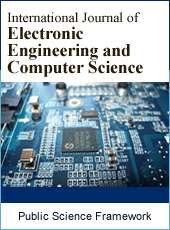International Journal of Electronic Engineering and Computer Science
Articles Information
International Journal of Electronic Engineering and Computer Science, Vol.3, No.3, Sep. 2018, Pub. Date: Aug. 6, 2018
Agile Methodologies: Useful Approaches for Software Process Improvements over Traditional Methodologies
Pages: 39-48 Views: 2469 Downloads: 612
[01]
Naseer Ahmad, Department of Computer Science, Virtual University of Pakistan, Lahore, Pakistan.
Now a days the business market is going to be extremely energetic, and organizations regularly transforming their software requirements in order to be compatible with existing business market. These organizations also give order to the software development teams for rapid delivery of software products in order to fulfil their requirements. The traditional software developments methodologies fail in order to meet these demands of particular organizations or customers. However, traditional developments approaches such as water fall model, spiral model, V model, or object oriented approaches, carry on to control the development of systems a small number of decades and a lot of effort has been done to enhance these traditional methodologies, Agile software development methodology carry its individual set of narrative tests that should be managed to convince the customer or an organization that put order for a particular software product through before time and consistent delivery of the valuable software product. In this paper, we illustrate the main facts and features of agile software development methodology that enhances the development process of software product to fulfil the quick changes of software product in the business market.
Agile, Traditional, XP, Scrum, Methodology
[01]
A B M Moniruzzaman and Dr Syed Akhter Hossain, “Comparative Study on Agile software development methodologies”, Global Journal of Computer Science and Technology (c) Volume 13 Issue 7 Version I 12 Jul 2013.
[02]
M. A. Awad, “A comparison between Agile and Traditional Software Development Methodologies”, The University of Western Australia, 2005, pp. 2-47
[03]
Outi Salo, “Enabling Software Process Improvement in Agile Software Development Teams and Organizations”, University of Oulu, for public discussion in the Auditorium L10, Linnanmaa, January 12th, 2007, pp. 24-26
[04]
Ngoc Tuan Nguyen, “How software process improvement standards and agile methods co-exist in software organizations?”, Thesis M.Sc. Business Information Technology, Enschede, August 2010, pp. 18-21
[05]
caslino, “Traditional Vs Agile Software Development”, Feb 04, 2014 http://www.optimusinfo.com/blog/2014/02/04/traditional-vs-agile-software-development.html
[06]
Wilfrid Hutagalung, “Extreme Programming”, 2006 http://www.umsl.edu/~sauterv/analysis/f06Papers/Hutagalung/#waterfall
[07]
http://cachesys.com/cachesys/methodology.html
[08]
“Scrum Methodology” http://www.mountaingoatsoftware.com/agile/scrum
[09]
Sadhna Goyal, “Feature Driven Development, Agile Techniques for Project Management and Software Engineering”, Technical University Munich, 2008, pp. 3-7
[10]
http://www.umsl.edu/~sauterv/analysis/6840_f09_papers/Nat/Agile.html#ASD
[11]
Chong Chang, “Selecting an Appropriate Software Development Lifecycle (SDL) Model in an Agency Environment”, 16 Aug 2012. http://www.metia.com/seattle/chong-chang/2012/08/sdl-model-in-an-agency-environment/
[12]
http://leansoftwareengineering.com/2008/05/05/boehms-spiral-revisited/
[13]
Bret Rudnick, “Agile Versus Traditional – A Tale of Two Methodologies”, Sheraton System Architectures Workshop, 2013, pp. 8-16
[14]
Booch Grady, “Object Solutions: Managing the Object-Oriented Project”, Addison Wesley, 1995.
[15]
Pittman Mathew. “Lessons Learned in Managing Object-Oriented Development”, IEEE Software, January 1993, pp. 41-52.

ISSN Print: Pending
ISSN Online: Pending
Current Issue:
Vol. 6, Issue 3, September Submit a Manuscript Join Editorial Board Join Reviewer Team
ISSN Online: Pending
Current Issue:
Vol. 6, Issue 3, September Submit a Manuscript Join Editorial Board Join Reviewer Team
| About This Journal |
| All Issues |
| Open Access |
| Indexing |
| Payment Information |
| Author Guidelines |
| Review Process |
| Publication Ethics |
| Editorial Board |
| Peer Reviewers |


